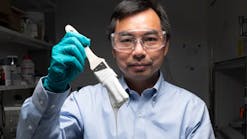Five years ago, with the tongue-in-cheek headline Rock & Roll Will Never Die (but it could be greener), we discussed the significant energy and greenhouse gas (GHG) emissions penalty associated with streaming music. At that time, Prof. Kyle Devine of the University of Oslo said, “Streaming recorded music from internet-connected devices has resulted in significantly higher carbon emissions than at any previous point in the history of music.”
Music, of course, is just part of the story.
Over the past decade, we have seen huge increases in the demand for digital services, all of which require enormous amounts of energy. In addition to the number of internet users more than doubling since 2010, global internet traffic has grown by 2500%. Cloud computing and cryptocurrency mining (blockchain) have added significantly to the digital data energy load and, if it were not for the continuing increases in energy efficiency, the energy consumption for digital data would far exceed today’s estimated 1-to-1.5% of global electric energy use.
- Register for HPAC's upcoming webinar on A.I. in Engineering here.
Today, the fastest growing computer-related technology is, of course, artificial intelligence. Hardly a day goes by that doesn’t have news about a new development or another major investment in AI. It’s hard to believe that ChatGP was originally released in November 2022, and just four months later, it was already releasing version 4.0.
Now there are more than a dozen open source AI platforms, most or all of them – like ChatGPT – powered by Nvidia GPUs. Nvidia, which bills itself as “The World Leader in Accelerated Computing”, invented the graphics processing unit (GPU) in 1999, driving the gaming market and taking computer graphics to the next level. With its GPU now being used in the major AI platforms, its stock has risen sharply over the past year, from $265 per share to $903, as of the date of this writing.
- Read HPAC columnist Ken Elovitz's own recent take on A.I. here.
TrendForce, a leading market intelligence firm, estimates that ChatGPT was powered by 30,000 Nivida A100 GPUs last year. At 250 W each, that’s 7.5 MW (the average U.S. powerplant is 48 MW).
According to the International Energy Agency, the electric energy required for data centers, including AI and cryptocurrency mining, could double in the next two years. That will put more strain on the power grid, and electric utilities will arguably be forced to sacrifice their commitments to reduce GHG emissions in order to provide more capacity.
Along the way, we have been hearing warnings from computer scientists like Geoffrey Hinton, often referred to as the “Godfather of AI”, about the societal dangers of AI. Last year, more than 1,000 tech leaders – including Elon Musk, Apple Co-founder Steve Wozniak, and Rachel Bronson, president of the Bulletin of the Atomic Scientists – signed an open letter urging a pause on large AI experiments. The risks they cited include job losses, biases in hiring, the proliferation of deepfakes, more automation of weapons systems, and perhaps the most dangerous, development of uncontrollable self-aware AI.
As far as anyone knows, that desired "pause" never happened.
So we are now at what some believe is actually the tipping point of transformative AI, meaning AI that changes our society by an amount comparable to, or greater than, the Industrial Revolution.
But the potential damage to our environment is one more factor to be considered when weighing the risks of AI against its undeniable benefits in fields like science and medicine.
####
A contributor to HPAC Engineering since 2013 and a member of its editorial advisory board, the author is a principal at Sustainable Performance Solutions LLC, a south Florida-based engineering firm focusing on energy and sustainability. He can be reached at [email protected].









